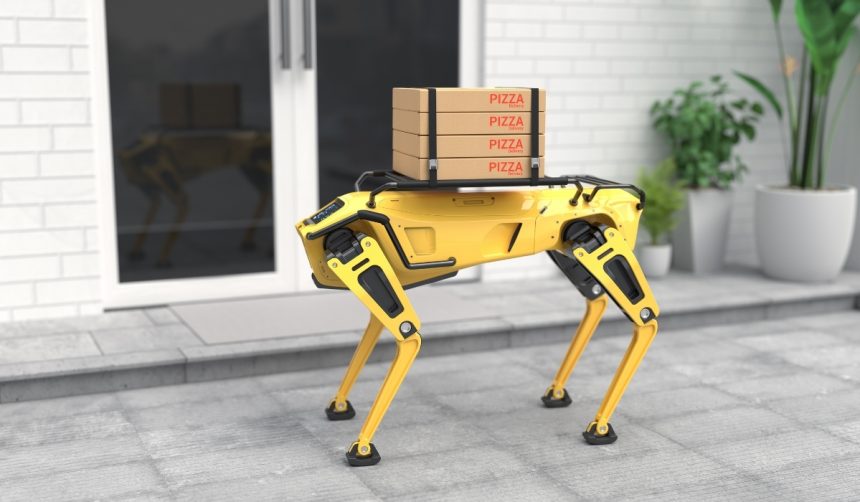Industrial firms looking to cut down on manual labor in manufacturing processes have seen a surge in collaborative robotics, and two leading companies are joining forces to meet this demand. Viam Inc., a software engineering company with a focus on robotics, has entered a partnership with Universal Robots A/S to introduce an AI-powered system to streamline industrial applications. By combining their expertise, they aim to provide enhanced solutions for complicated and physically challenging jobs, beginning with shipbuilding. Early reactions suggest the collaboration might offer manufacturers more options to address labor shortages and increase process reliability.
While Viam’s previous partnerships concentrated on cloud-based and open-source robotic architectures, this collaboration presents a strategic shift toward targeted industry integration, especially in marine manufacturing. Universal Robots, with its considerable market presence and experience in collaborative robots worldwide, previously relied heavily on its PolyScope platform and in-house innovations for market growth. Unlike earlier initiatives that had a broader focus, this approach zeroes in on high-touch processes such as sanding and polishing, areas that often lack automation due to safety limitations or complex part variability. Additionally, both companies face workforce and growth challenges, and their combined strategy signals a move toward broader real-world adoption in traditional manufacturing.
How Will This Partnership Tackle Labor Shortages?
Labor shortages have remained a persistent issue for manufacturers globally, especially in sectors requiring repetitive and physically exhausting work. The software-driven, AI-enabled cobot solution will allow companies to automate tasks that have been difficult to mechanize in the past. Viam contends that its platform helps bridge gaps in production efficiency and workforce skills. The company emphasizes flexibility through compatibility with various hardware, making it possible to reconfigure workflows as needed.
“Viam’s intelligent software layer combined with Universal Robots’ cobots can enable rapid adoption of automation,”
stated Eliot Horowitz, Viam’s founder and CEO. This adaptability is seen as a potential draw for firms seeking solutions to persistent workforce shortages.
Can AI-Enhanced Cobots Improve Consistency in Shipbuilding?
With shipbuilding as an initial focus, both companies expect automation to address tasks such as fiberglass sanding, a labor-intensive step that has challenged full mechanization. The UR Series cobots, paired with Viam’s AI-powered software, are engineered to manage variable component sizes and surfaces. This setup provides a streamlined process for manufacturers, resulting in improved product uniformity and reduced production delays. A key technical feature is Viam’s hardware-agnostic software, which reportedly lets companies change robotic arms according to the task at hand without extensive reprogramming or retraining of staff.
“Viam’s AI-powered software opens new applications for our collaborative robots and sets the stage for rapid innovation in the marine sector and across industries in the years ahead,”
said Jean-Pierre Hathout, president of Teradyne Robotics Group, Universal Robots’ parent company.
Will These Solutions Expand Beyond Marine Manufacturing?
While the marine sector is a primary target, the partners have plans to extend their solution to industries such as furniture production, construction, and general industrial manufacturing. The software’s learning abilities and adaptability enable its use for gelcoat and paint applications, wood sanding, and polishing—processes that share similar automation challenges. Universal Robots, maintaining a strong international network and over 100,000 collaborative robots deployed, may use this opportunity to reach customers in market segments previously out of reach due to technical barriers. The introduction of the system at Metstrade 2025 in Amsterdam marks its European arrival, signaling potential market expansion.
Bringing industrial automation to labor-intensive sectors has traditionally been challenging, both technically and economically, for robotics companies. Viam and Universal Robots face ongoing competition from other automation providers offering comparable robotic sanding and finishing solutions, many of which highlight proprietary hardware or vertically integrated systems. The decision to focus on an AI-centric, hardware-agnostic platform is notable because it provides flexibility while potentially increasing interoperability. For manufacturers, balancing the capital investment in robotics with achievable efficiency remains a top concern. Exploring more modular and software-driven solutions may support businesses working under unpredictable demand and complex production environments, where agility is highly valued. Readers considering these technologies for their organizations should evaluate not just the technical specifications but also the ease of deployment, support ecosystem, and prospects for integration with existing processes. Companies interested in automation for repetitive manual tasks may find that this approach to cobot deployment opens up new ways to scale production while managing long-term workforce needs.










